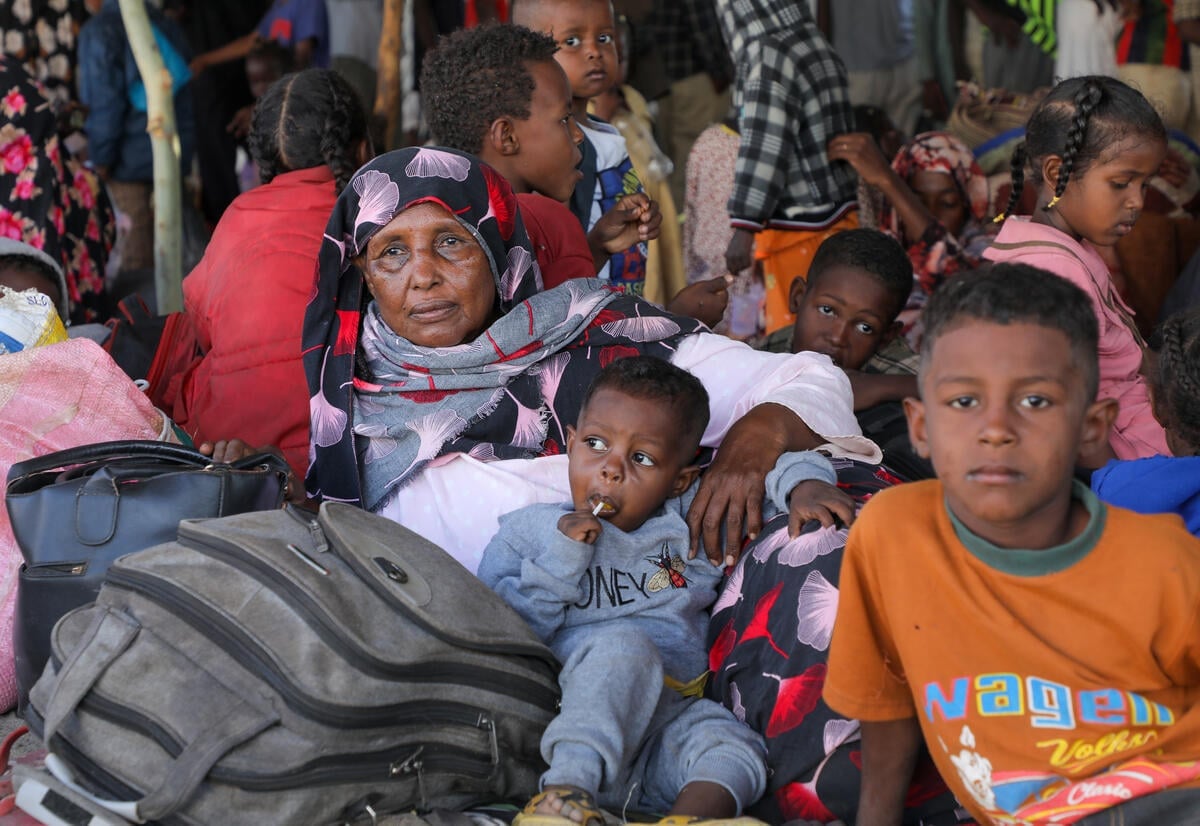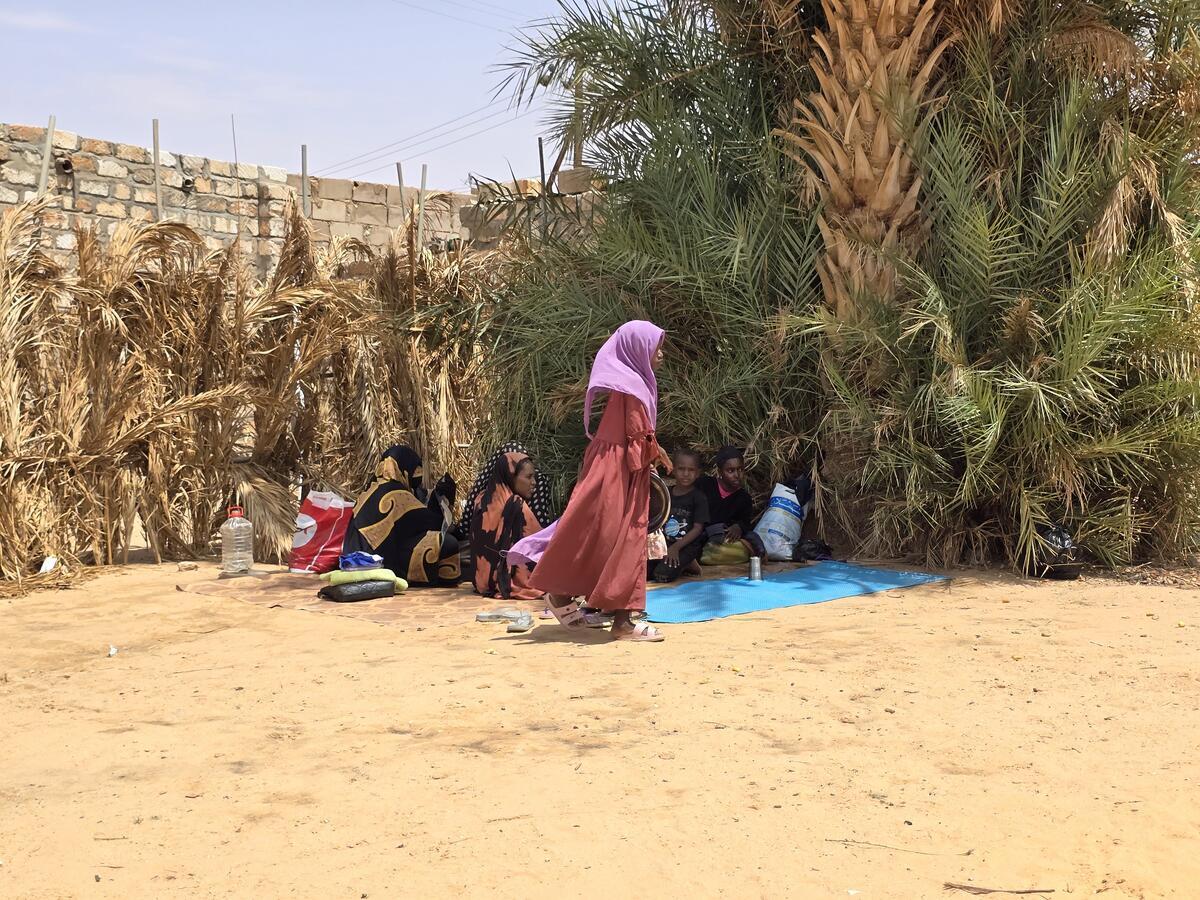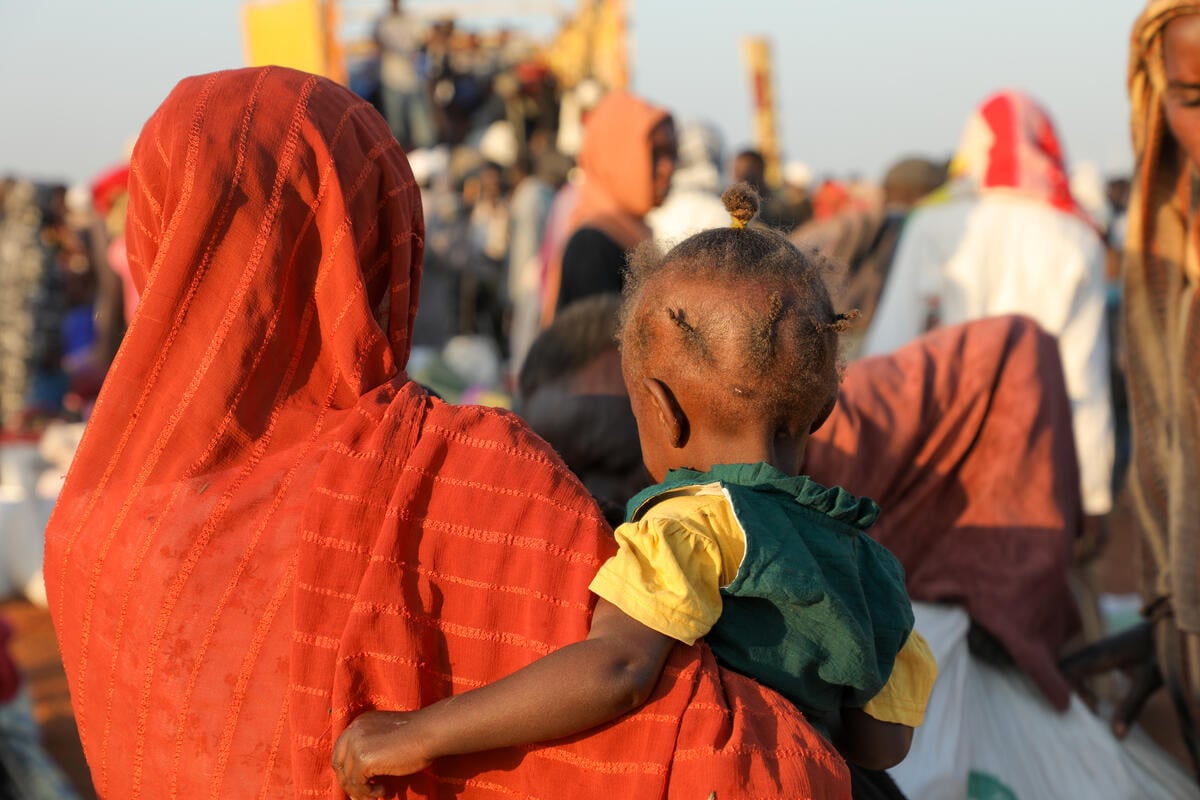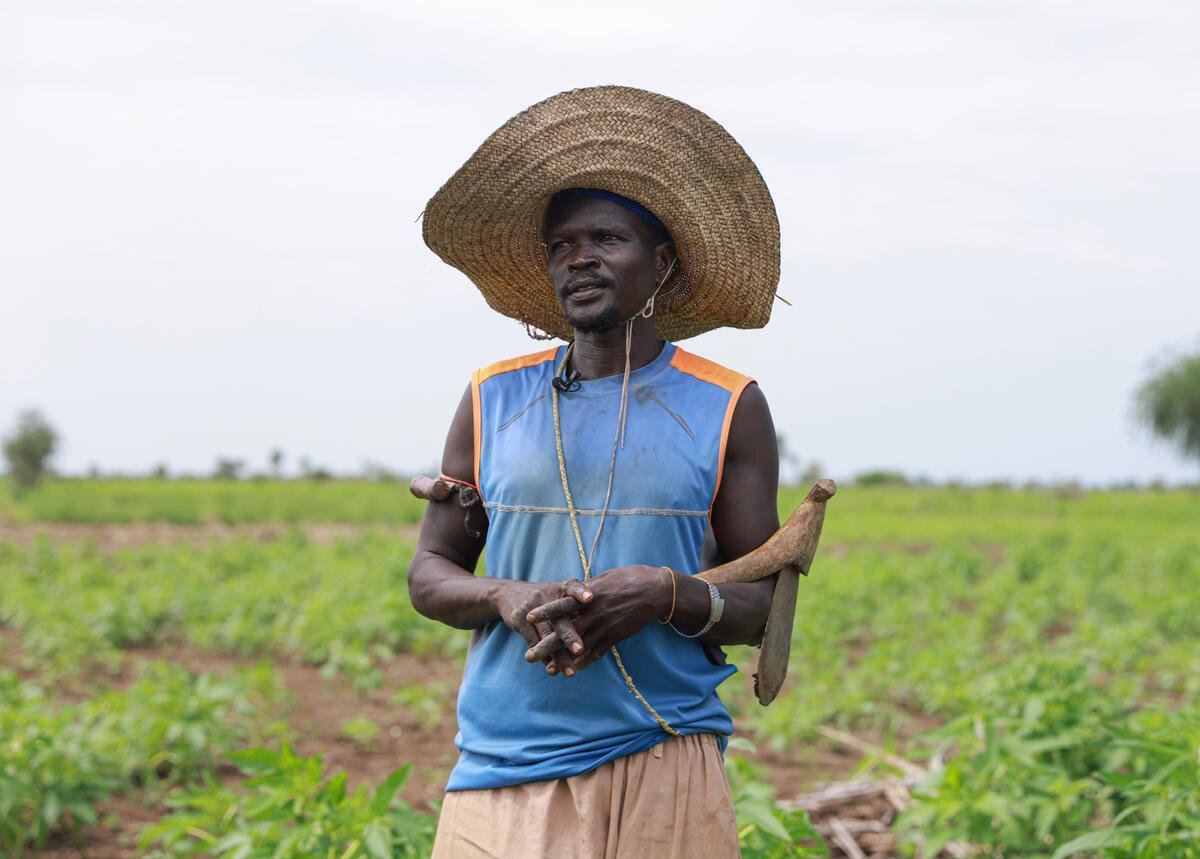Sudanese influx in Chad needs urgent aid to avert tragedy
Sudanese influx in Chad needs urgent aid to avert tragedy

NDJAMENA, Chad, Sept 5 (UNHCR) - Some 65,000 refugees who fled recent fighting in western Sudan are living out in the open in northern and north-eastern Chad with no food, safe drinking water or health care. These are some of the findings of an assessment mission comprising officials of the UN refugee agency, the UN World Food Programme, and two Chadian members of parliament who have just returned from visiting the refugees.
They found the Sudanese refugees - who had fled warfare and ethnic violence in the Darfur region of western Sudan - living out in the open with no shelter, blankets or plastic sheeting to protect them from the desert weather that ranges from blazing hot during the daytime to chilly at night. Some children have died of malaria, diarrhoea and starvation.
The Chadian government only recently alerted UNHCR to the presence of the refugees, who started coming in April. The influx continues, with new refugees arriving every day, and even more still expected.
The visiting team called for urgent measures to supply canvas, plastic sheeting, food, water, mosquito nets, medicine and household items to the refugees to avert a tragedy.
"Many people whose lives are in danger could be rescued if action can be taken quickly," the mission concluded. Most of the refugees are women and children, and many women report having lost their husbands in the conflict in Sudan.
The refugees are fleeing fighting between the Sudan Liberation Movement (SLM, founded in August, 2001, as the Darfur Liberation Movement) and Khartoum government forces in the Darfur region of western Sudan. Refugees told the mission that the violence has also led to ethnic strife between Sudanese of Arab origin and those of African origin.
The refugees are scattered in parts of three regions of north and north-eastern Chad. In Tine subprefecture, the 28,000 registered refugees have swamped the population of just 11,000. Some local people have given the refugees food, but the mission found that even the local Chadians do not have enough to eat. In some areas, refugees are eating tree bark to stave off starvation.
Living conditions are miserable. "The majority of the refugees are living outside, under shrubs or very precarious shelters," reported Sebastien Apatita, the UNHCR official who headed the mission. "With the exception of Bahai, it is still raining everywhere that the refugees are. When they don't have to face rain and cold, they have to face heat."
They have no access to clean drinking water and are forced to drink from pools with no way to boil the water first. Not surprisingly, many cases of diarrhoea have been reported.
Local health care centres are lacking even the most basic medicine to help the refugees, and are so understaffed that one nurse serves more than 20,000 people. A number of refugees with bullet wounds from the fighting in Sudan have still not been able to get treatment.
Darfur, the area the refugees fled, has been the main battlefront in Sudan, as a truce between the Khartoum government and southern rebels of the Sudan People's Liberation Movement/Army (SPLM/A) is largely holding while peace talks continue in Kenya. The SLM has now announced its own ceasefire, leading to hopes that the refugee influx to Chad may soon slow down.









